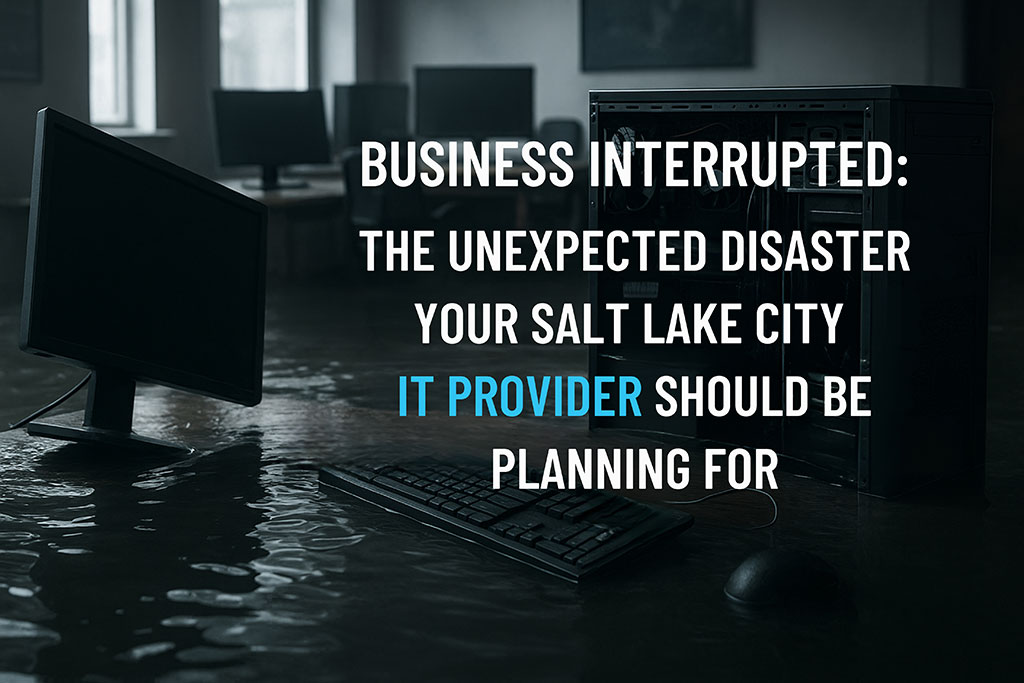
Power outages. Cyberattacks. Hardware failures. Snowstorms shutting down I-15. When you’re running a construction company in Salt Lake City, these aren’t just what-ifs—they’re disruptions that can halt job sites, delay permits, and cost you contracts.
The problem? Most construction companies think having a backup is enough. But restoring a file isn't the same as keeping your entire operation moving when disaster hits. If your field teams can’t access project files, your PMs can’t update Procore, or your accounting team can’t run payroll, you’re in trouble.
A reliable IT provider for construction firms in Salt Lake City should be planning for these scenarios—not just with backups, but with a real continuity strategy.
Backups Are Basic. What You Need Is Business Continuity.
Let’s get something straight: backups are essential. But in the construction world, they’re just the foundation. What you need is a full business continuity plan—a proactive system that keeps your firm working through a crisis, not just recovering afterward.
Your bid deadlines don’t pause for an outage. Neither do OSHA inspections, city permit schedules, or draw requests.
If your Salt Lake City IT services provider can’t show you how fast your systems can get back online or how your field and office teams can keep working if disaster hits, you’re gambling with your company’s reputation.
Backups vs. Continuity: Know The Difference
Too many construction leaders we talk to confuse "backups" with "continuity."
- Backups restore your files.
- Continuity keeps your jobs moving.
A strong continuity plan should cover:
- Where your team works if the office is inaccessible
- Which systems (BIM, Procore, payroll) are mission-critical
- Who owns the recovery process
- How long your team can afford to be offline
It should include:
- Encrypted, off-site, and immutable backups
- Recovery time objectives (RTO) and recovery point objectives (RPO)
- Redundant systems and failovers for cloud tools
- Remote access for field teams and managers
- Regular testing (not just assuming it works)
If your current IT provider can’t walk you through this clearly—they’re not giving you continuity. They’re giving you luck.
Real Construction Firms. Real Disasters.
We’re not talking theory here. We’ve seen:
- A Salt Lake City GC lose access to Procore for three days after a local power failure—delaying two city inspections.
- A roofing company hit with ransomware that corrupted their backups and froze their vendor payment systems.
- A project team forced to halt work when their remote time-tracking app went down and they had no backup.
In each case, the problem wasn’t the disaster. It was the lack of a continuity plan.
Ask These Questions Before Trouble Hits
What happens if the office goes down?
Can your job sites keep running if your network is offline?
Does your current provider test your disaster recovery plan? Do they even have one?
Are your backups compliant with your insurance requirements?
Can your team switch to remote work instantly if needed?
If you don’t know the answers—or don’t like the ones you’re hearing—you’re exposed.
You Can’t Stop Disasters. But You Can Skip Downtime.
Disasters happen. But delays, lost revenue, and contract penalties don’t have to.
At Qual IT, we specialize in managed IT services for construction firms in Salt Lake City. We build business continuity plans that fit your workflows, your vendors, and your job sites. So when the unexpected hits, you keep moving.
Want to know how resilient your systems really are?
Click here to schedule your FREE Network Assessment with Qual IT.



